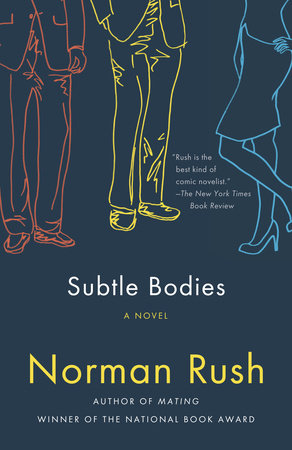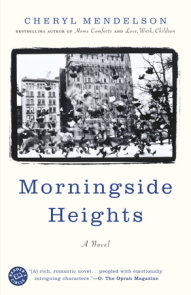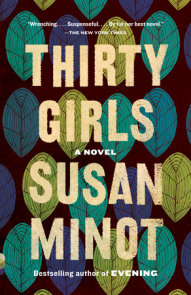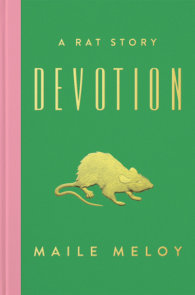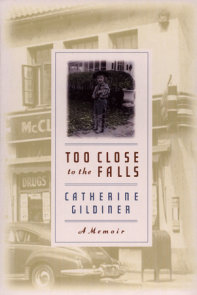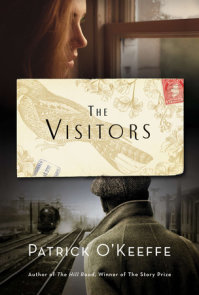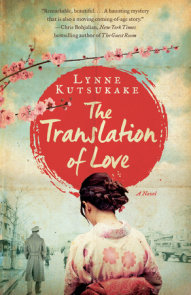READERS GUIDE
The discussion questions and other material that follow are designed to enhance your group’s reading of Norman Rush’s Subtle Bodies. We hope they will provide useful ways of thinking and talking about this highly anticipated new novel by the author of Whites, Mating (which won the National Book Award in 1991) and Mortals.Introduction
Back in the seventies, five young men were close college friends. Twenty-five years later—just as the U.S. is set to invade Iraq—the friends gather to mourn Douglas, the leader of their witty band, who has died suddenly in a riding-mower accident. Ned, who had been in thrall to Douglas, rushes away from his life in California to join the others in New York’s Catskill mountains, where a memorial will take place at Douglas’s estate. But Ned leaves behind his 36-year-old wife, Nina, who is trying to conceive with the help of fertility drugs, and he has left town just as she is about to ovulate. Incensed, Nina follows him East, and is soon on the scene to observe the drama caused by Douglas’s death. Some struggle is going on between Elliot, one of the remaining friends, and Iva, Douglas’s dramatically seductive widow, about how Douglas should be memorialized. Alone among the group, Ned has still committed himself to political activism and is currently organizing an antiwar march; he is baffled that his old friends are refusing to sign his petition against the impending invasion.Nina lets Ned know what she thinks of his fallen idol, and of his nostalgia for the group’s past antics under Douglas’s leadership. Meanwhile, Ned struggles to make sense of the powerful emotions he feels toward his friends, assisted by the even more powerful excitement, laughter, and joy provoked in him by Nina. In this delightfully intelligent story of love and friendship, Rush suspends his hero between his past and future, forcing him to see both anew.
Questions and Topics for Discussion
1. What is your first impression of Nina, in Chapter 2? What are the strongest aspects of her character?
2. The structure of the novel alternates between sections presented from Nina’s point of view and sections presented from Ned’s. In what ways does this structure also create a portrait of these two people, and of their relationship?
3. “Her mother regularly declared that there was a mystical ‘subtle body’ inside or surrounding or emanating from every human being and that if you could see it, it told you something. It told you about the essence of a person, their secrets, for example. It was all about attending closely enough to see them” (p. 4). Is Nina able to see (or feel) these essences? Is Ned?
4. Nina thinks of Ned’s “clique of college friends” as “clowns . . . goofing on the world under the baton of their maestro Douglas” (5). She refers to their “badinage-based humor” and “their idiotic exhibitionism” (9, 106). What evidence of their status as “superior sensibilities” do you see (9)? Do you find Ned’s nostalgia for those friendships understandable? Deluded? Both?
5. Ned, according to Nina, is “a sort of Jesus, a secular Jesus” (7). “There had truly been a superior soul in their little grouplet, and that had been Ned, her lad, her Ned” (11). In what way is it significant that Ned is the only member of the group who has made a life out of his commitment to social justice?
6. Nina states that Ned doesn’t seem to understand that “there is no permanent friendship between men, among men. . . . Women can have friends, it’s more personal” (12). Is she right in this? Nina’s opinion of Douglas creates an amusing contrast with Ned’s obstinate attachment to his dead friend. Whose opinion do you come to agree with?
7. Is Hume most likely the person who has stuck a pushpin into the image of Douglas in the double portrait (68)? Might it be Iva? How does the presence of Hume disrupt the image of Douglas and Iva’s perfect life?
8. Ned, sadly talking with Joris and Gruen, says, “The group is finished.” Joris answers, “It was finished long ago” (45). Is Joris right? The three discuss their idea of what the group was (45-6). Does the novel convey the sense of an intact group, or one that exists only in memories?
9. Iva says to Ned, “You were the closest, of course, because you both loved Claire” (72). Why is it significant that Ned had a long relationship with Douglas’s ex, Claire? What is the “diabolical” thing that has been going on without his knowledge, that leaves Ned “drowning in bitterness” (73)? What is his reaction later when he learns more about what Iva hints at here, and does it change his feelings about Douglas (200-2)?
10. Ned walks down to the Vale to meet Nina in the parking lot of the general store; their reunion takes place on pp. 77-8. What is interesting, funny, or unusual about these two people? What does the scene reveal about their bond?
11. The novel presents a situation in which everyone is present to honor Douglas and to remember him. What kind of person was he? Does the novel seem to present Douglas as a mystery? What does Nina find out about Douglas’s activities and how he has made his money?
12. Note that the first word of this novel is “genitals.” Why is sex such an important element of this story? What part does sex play in the development of the plot, and in the lives of the other characters? Does Rush create, in Ned and Nina, an ideal partnership of minds and bodies?
13. From Joris, Ned hears opinions about Claire he has never heard before: “She was a shit. . . . She was no good . . . . she was passive” (127-8). How much of what Ned goes through in this story is a forced reevaluation of his lovers, his friends, and his past?
14. Ned wants to understand, about himself and his friends, “whether their true interior selves—the subtle bodies inside—were still there and functioning despite what age and accident and force of circumstance may have done to hurt them” (198). How is this question relevant to anyone who thinks about the passing of time and its impact on friendships? Does Subtle Bodies examine the question, “Should we try to let go of the past and of our past selves?” By the end of the novel, where do you see Ned on this question?
15. Ned has moments of great clarity about what he has with Nina. Thinking of her, he realizes, “I need to live forever” (64).He wants to say to Nina, “I would always like to be what I am now, with you” (198). Do these moments help Ned to commit fully to her and to their child-to-be?
16. Why does Joris resist signing Ned’s petition? Is Ned overly idealistic in his political ideas? Consider their long and heated political argument (137-44). Given what we now know about what happened in Iraq, who do you think was right––Joris or Ned?
17. Discuss Ned’s decision to read aloud from Douglas’s copy of Boswell’s Life of Samuel Johnson, and how the passage is meaningful for his own life, for Douglas’s life, for anyone’s life (233).
18. Norman Rush is one of the great writers on marriage, possibly because he and his wife Elsa have an extraordinary one. The idiosyncratic, comical, wonderfully real exchanges between Nina and Ned are also found between lovers and spouses in Mortals and Mating. In a Paris Review interview Rush said, “A couple’s private language can develop in peculiar ways that look ordinary to the couple, but very strange to any outsider. . . . Extraordinary language is sometimes just what happens between two people living closely over many years.” Discuss this statement in the context of the most amusing, lively, or enviable moments of interaction between Nina and Ned.









